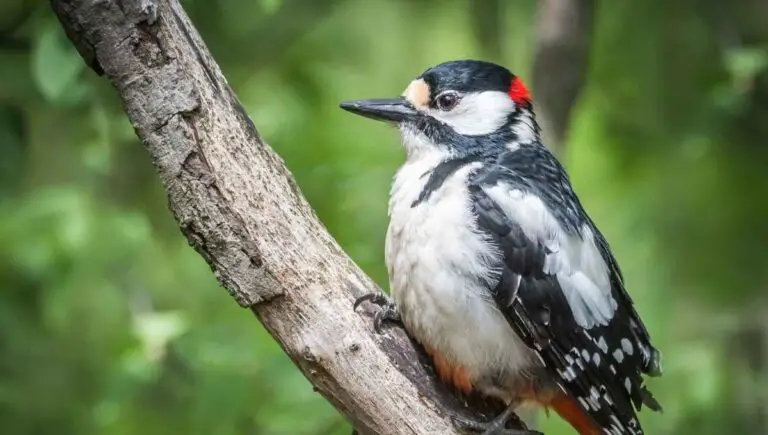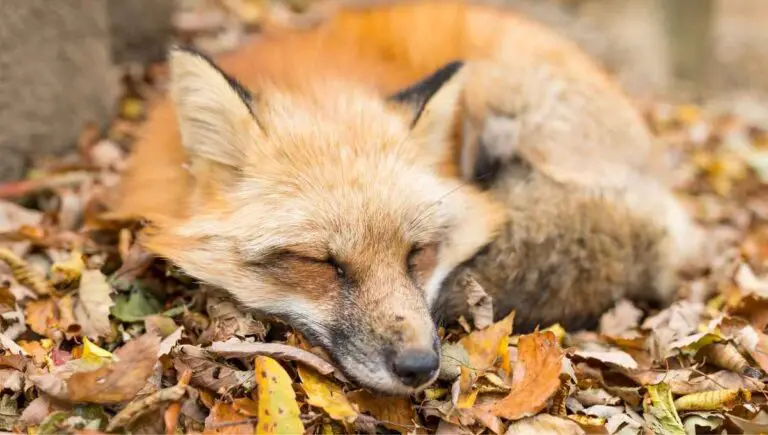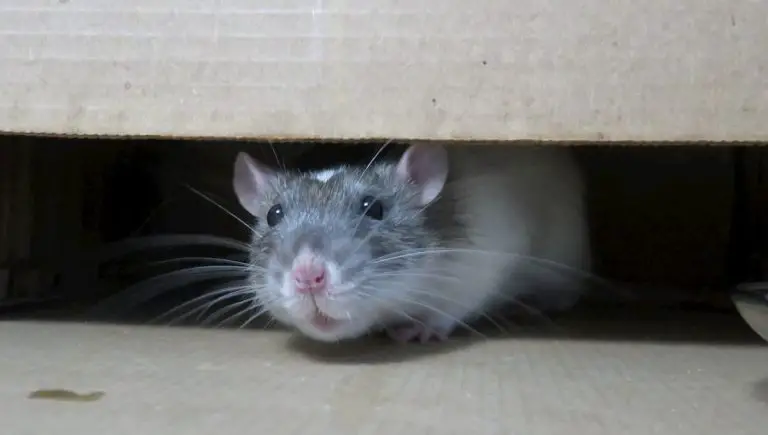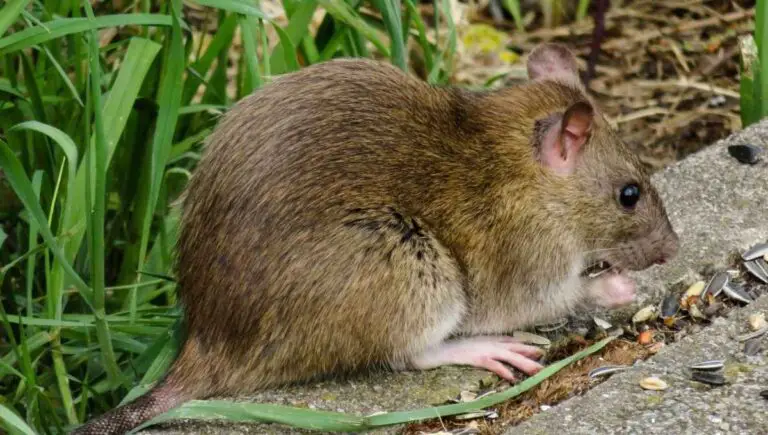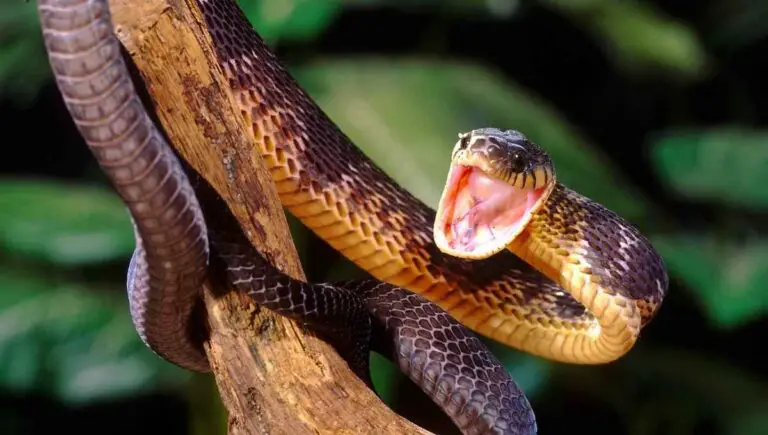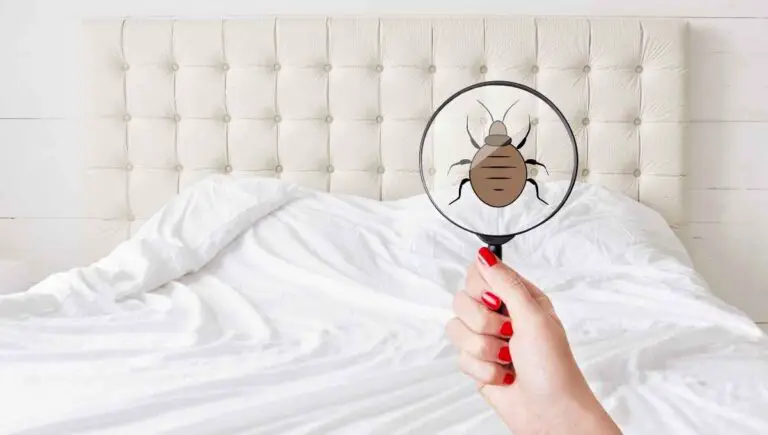Is It Illegal to Kill Pigeons? (We Checked the Laws)
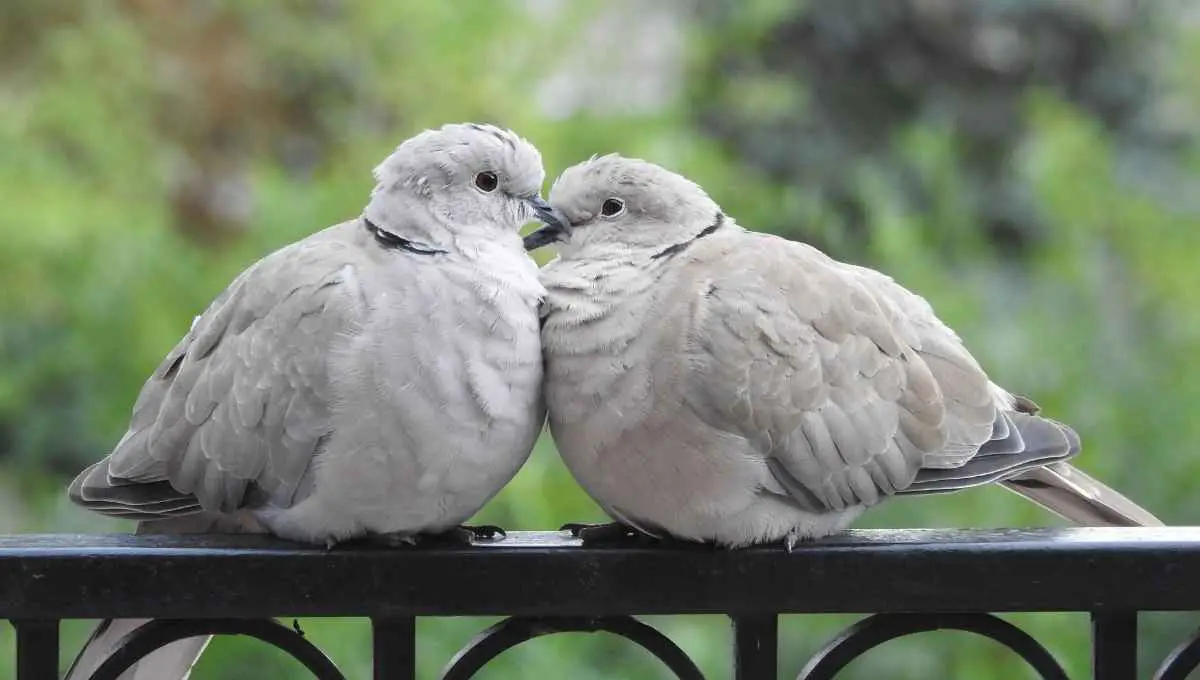
If you have feral pigeons making your yard their home, you’re probably pretty frustrated. They’re loud, messy, smelly, and you just want them gone. And now, you’re willing to go to extremes to get rid of them. But first, you need to know, is it illegal to kill pigeons?
In most states, killing feral pigeons is not illegal. However, just because you can legally kill them doesn’t mean that killing them is the best way to solve your problem. If you kill one, more will just take their place.
In this article, we’ll be delving deeper into the laws surrounding killing pigeons and exploring other alternatives to solve all your pigeon problems permanently.
This post contains affiliate links from Amazon and other stores. This means Yard Blogger may earn a commission if you make a purchase using any of our links. Please refer to our full affiliate disclosure policy for full details.
Here’s a Quick Pro Tip!
Although killing pigeons is legal, this should only be done as a last resort.
So, if you’re fed up with pigeons feeding on your garden and roosting on your roof, we’ve got other solutions for you! Consider some of these great products to keep your yard pigeon free.
Here are some of our favorites from Amazon:
1. Spikes – Placing spikes above gutters, along fences, and on windowsills to prevent pigeons from nesting.
2. Decoys – Having a hawk flying above your property is a great deterrent. Pigeons won’t stop to rest with a predator nearby!
3. Netting – If the pigeons are enjoying a free meal from your garden, consider some heavy-duty bird netting to keep them out. Don’t forget the mounting clips for easy installation!
The Laws Regarding the Killings of Pigeons
Having pigeons roosting around your home can be very frustrating. Want to know how to get them out of your life legally? We’ve checked out the laws, so you don’t have to!
Is It Illegal to Kill Pigeons?
It is not illegal to kill feral pigeons in most states. However, the answer is more complicated than that. First, you must be sure the pigeons in question are feral, not homing. Additionally, make sure your culling technique is acceptable.
In most cities and towns, discharging a firearm is illegal. This means you’ll need to find a different way to dispatch your unwanted animals. Consider a humane trap instead.
After they are trapped, they can be relocated instead of killed.
Is It Illegal to Kill and Eat Pigeons?
In most places, it is not illegal to kill and eat pigeons. In fact, young pigeons are also sometimes referred to as squab and are considered game birds. If you aren’t sure whether it is illegal to hunt birds in your area, be sure to check local laws before the hunt.
If you are attempting to kill a pigeon to eat, be sure to kill the bird humanely. The most common way to go about this is to either shoot it or trap it.
Also, be sure to check your local and state laws regarding discharging a firearm.
Is Killing Pigeons Legal?
Pigeons are not federally protected birds. This means, in most cases, it is legal to kill a pigeon. Be sure to check your state and local laws for a final say. In most cases, you can trap and euthanize or poison feral pigeons.
In certain instances, you may also be allowed to shoot them.
In Ohio, pigeons can be killed and their nests or eggs destroyed at any time. However, if you have a pigeon problem, simply killing a handful may not be the best way to stop the infestation.
Consider options such as trapping first.
How Do You Legally Kill a Pigeon?
In most places, you can legally kill a pigeon by shooting it (check local firearm discharge laws first!), trapping and euthanizing it, or poisoning it. These methods are considered the most humane and commonplace.
Pigeons are one of only a few birds that you can legally humanely kill, according to The Migratory Bird Treaty Act of 1918, otherwise known as MBTA.
Any method other than the ones listed above can result in animal cruelty charges, so be sure you know how you plan on dispatching the pigeon before you start.
Can I Shoot a Pigeon in My Backyard?
If you’re considering shooting a pigeon in your backyard, be sure to check your local firearm laws. In most cities, you cannot discharge a weapon within city limits. This is for everyone’s safety.
If you live in a rural area and have a permit for the weapon and any applicable hunting licenses, you have every right to hunt and shoot pigeons in your own backyard.
If you’re unsure about local laws, be sure to check before shooting!
You might also enjoy our post on If It’s Illegal to Shoot Birds in Your Backyard
Can I Shoot a Pigeon in My Garden?
If pigeons are causing a stir in your garden, and your local laws say you can discharge a firearm, you can shoot a pigeon in your garden. Consider using a BB gun, as they often do not need licensing.
If you cannot legally shoot a pigeon in your area, there are other options! Consider getting some bird netting and fencing to keep your garden safe from harm.
You may also consider getting a fake flying hawk to scare them away.
The Protection of Pigeons
If you’re having problems with pigeons, you’re probably wondering if they are protected animals or if you can legally kill them. We’ve got all the answers to your pigeon quandaries.
Are Pigeons Protected Under the Migratory Bird Act?
Almost all birds qualify for protection under the Migratory Bird Treaty Act. However, pigeons are not. While this means pigeons can be killed legally, there are many options if you have pigeon problems.
Consider using other deterrents to keep pigeons off your property. Connecticut’s Department of Energy and Environmental Protection offers several different options, such as pigeon proofing your roof and offering trapping permits.
Are Pigeons a Protected Species?
Feral pigeons are not considered a protected species. Be careful if you plan on culling pigeons, however. Homing pigeons and feral pigeons look very similar, and homing pigeons are protected.
Because pigeons reproduce so quickly, they are not a protected species. Because they are not protected, you can legally kill pigeons. If they’re being a nuisance, there are plenty of options to get rid of them.
Why Are Pigeons Not Protected?
Pigeons are not considered protected animals for a couple of significant reasons. The first is that they reproduce at great rates, with adult females having two nests a year, with each nest having up to nine eggs.
Additionally, pigeons can sometimes carry and transmit diseases to humans. Therefore, stay away from their waste, which is the most likely transmitter for diseases such as:
- Aspergillosis
- Histoplasmosis
- Psittacosis
- Salmonellosis
However, this fact is widely debated.
Are Pigeons Considered a Pest Animal?
In most major cities, pigeons are considered pest animals due to their quick reproductive rates. They also tend to congregate on any sheltered ridge they can find and love to feast in gardens.
The pigeon’s diet consists mainly of grains, grasses, and berries. If that sounds like your back garden, you’re not alone!
While pigeons are technically considered omnivores, meaning they’ll eat just about anything, they do prefer to stick with plant matter.
Are Pigeons Considered a Nuisance Animal?
In large numbers, pigeons are typically considered pest animals. This is because pigeons can sometimes carry disease and because a large flock can do severe damage to gardens and yards.
Additionally, pigeons have been determined to be a threat to human safety, as they are often found around airports. If a flock of pigeons collides with an airplane, they can cause enough damage for the plane to crash.
Are Pigeons Dangerous?
It has been argued that pigeons can be dangerous. Additionally, it has been noted that pigeon excrement can cause disease and that pigeons in large groups can consume and contaminate gardens and grain stores.
If you’re only looking at isolated incidents, it’s easy to understand why people consider pigeons dangerous. In reality, there is little proof that pigeons cause the diseases they’re accused of.
That being said, they’re still wild animals and should be treated with respect.
Do Pigeons Spread Disease?
As you probably already know, pigeon droppings can be smelly, corrosive, and can even carry disease. That being said, there is not a lot of proof to the disease claim, as outbreaks that can be traced back to pigeons are exceedingly rare.
It is wise to avoid any wild animal, as you never know if they are carrying disease. Pigeons do not have disease in a more significant number than any other wild animal.
While large groups of pigeons can be concerning, odds are they will not spread disease.
You might also enjoy our post on If It is Illegal to Kill Woodpeckers
Why You Have Pigeons in Your Yard
If you have a garden or even a nice patch of grass in your yard, odds are you’ve seen at least a pigeon or two. If you’re trying to figure out why pigeons have decided to call your yard home, we’ve got the answers for you!
What Are Pigeons Attracted To?
Several things attract pigeons. They may have found your garden a nice safe place to rest and get something to eat. If you have lots of eaves or small crannies around your roof and windows, they may have even found a good resting spot.
If you’re trying to avoid having a family of pigeons calling your house their home, consider these exclusion tactics:
- Block openings – If the pigeons can’t find a safe spot to roost, they’ll find somewhere else to call home.
- Screens – Covering your garden, garbage, and any other grain stores is a great way to discourage feeding. We recommend getting durable netting to prevent unwanted dinner guests!
- Guards – Consider putting new gutter guards on your roof. Another option is making all ledges at least a 45-degree angle. This will prevent pigeons from being able to build a safe nest.
- Spikes – Adding some spikes to fences and other common resting spots can prevent pigeons from being able to roost, poop, or build a nest.
Why Are Pigeons Hanging Around My House?
If you’re noticing an increase in pigeon activity around your home, you probably have something the pigeons enjoy. Maybe you’ve started putting food out, or your garden has lots of yummy treats they like.
If you need to figure out what is drawing the pigeons to your residence, consider what changes you’ve made recently. If you can find what they’re attracted to, you may be able to change it and stop them from thinking your place is the place to be!
Is It Good to Have Pigeons Around Your House?
Pigeons are a controversial animal. Some keep and breed pigeons for their homing skills and because they are considered game meat. Others think that pigeons are just dirty rats with wings and that they should not be considered a pet.
As with any non-domesticated animal, if you do not want to risk having a colony, do not feed or encourage pigeons to stay around your property.
Additionally, having a roost of pigeons can be a messy proposition, as their excrement is known to be smelly, corrosive, and potentially disease-ridden.
How to Solve Your Pigeon Problem
Now that we’ve discussed the legality of pigeons and some of their everyday eating and roosting behaviors, we’re going to explain the best ways to solve your pigeon problem humanely.
How Can I Get Rid of My Neighbor’s Pigeons?
If your neighbor is determined to feed the pigeons and you don’t want them around, you’ve got a couple of options. Start by speaking to your neighbor and making sure the pigeons aren’t homing pigeons.
As long as the pigeons in your neighbor’s yard are feral and unprotected, you will not get in any legal trouble for getting rid of them because they are not protected animals.
How Can I Get Rid of a Pigeon in My Yard?
If you’re noticing an increase in pigeon activity in your yard, you may want to take a few steps to get rid of them. A common non-lethal choice is to have them trapped and released elsewhere.
Other options include getting anti-pigeon protections, such as spikes and decoys. These devices can stop the problem before they get too out of hand and prevent you from having to consider a culling in the future.
How Do You Hunt Pigeons?
Pigeons are relatively small game birds. Most of the time, a pigeon can be killed by a high-powered BB gun. In most cases, you can buy a BB gun without a license. Be sure to check state and local laws regarding firearms before shooting!
To successfully hunt pigeons, find an open area where they already gather. You may want to consider using a decoy to convince the local pigeons that this is a safe place to gather.
From there, it’s just a matter of you being able to aim!
Can You Poison Pigeons?
In most cases, poisoning pigeons as a form of culling the population is one of the few humane ways legally allowed. While controversial, this method is still currently legal.
Poisoning pigeons to cull the population is controversial because most poisons are nerve agents. This means that the poisons can take a while to take effect and result in the pigeon’s slow and cruel demise.
While it’s currently legal, it’s not the best option by far.
Can You Hunt Pigeons Without a License?
Because pigeons are not protected animals, you do not require a license to hunt them. Be aware that if you are shooting them, there are still license requirements for firearms, as well as laws about where you can shoot.
Be careful not to hunt any protected bird species during your pigeon hunt. Most birds are covered under MBTA, and you can be fined or otherwise prosecuted for hunting them.
Always check your local laws before hunting.
You might also enjoy our post on If You Can Shoot a Raccoon on Your Property
How Can You Humanely Solve a Pigeon Problem?
You can humanely solve a pigeon problem by preventing pigeons from being able to roost and nest on your property. It’s also a good idea to make sure any gardens, grain silos, and other food sources are covered and unavailable to the pigeons.
While these won’t be instant fixes, the pigeons will notice that your home isn’t a safe and useful place to live anymore, and within a few weeks, they will naturally move on and find a different spot to live, no killing necessary.
Why Does It Not Work to Kill Pigeons?
Pigeons reproduce very quickly. Adult females can lay multiple eggs at a time and will lay eggs at least twice a year. This means that even killing off a whole group will not guarantee the problem is over.
Instead, consider other options, such as preventing the pigeons from having a safe roosting site and easy food access, which will deter them from staying on your property. Sometimes, the best solution is prevention rather than culling.
You might also enjoy our post on If You Can Shoot Squirrels in Your Backyard
Related Questions
Can I Legally Shoot Any Bird in My Backyard?
It is illegal to shoot most of the birds you see in your backyard. Most common birds are protected by the MBTA. If you are found to have shot any protected bird, you may face fines.
Additionally, most towns have laws against discharging firearms within town limits. This is to prevent accidental injuries from ricochets, amongst other reasons.
If you’re unsure as to the local statutes, be sure to check before you go hunting!
Can I Shoot a Squirrel in My Backyard?
Squirrels are not protected animals, and it is legal to shoot them during hunting season. Be sure you have all the necessary permits for hunting before doing so. Depending on where you live, you may be able to get special permits to hunt squirrels all year long.
Be sure you are aware of any local and state regulations regarding firearms before you go after your backyard squirrels. While it may be legal to hunt them, you do have to be in a place you are permitted to hunt!
Always check your permits before firing your weapons.
Final Thoughts
Pigeons are loud, smelly and can cause immense frustration if they decide to make a home on your property. We hope the tips and tricks we provided allow you to get some relief from these pesky creatures.





